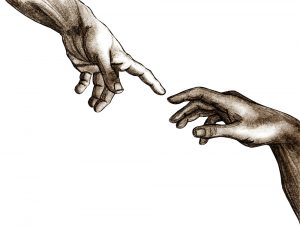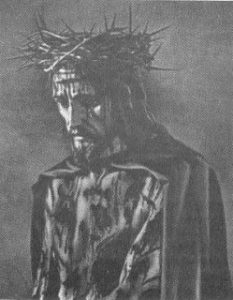Christian Counseling Training: The Virtue of Purity and the Teenage Years
“Blessed are the Pure of Heart for they shall see God” proclaims Christ. This statement speaks volumes about the importance of the virtue of purity and its role in our spiritual salvation. It is not a footnote or minor point for Christians to disregard as insignificant to our spiritual salvation but an essential part of our spiritual life. Society would like to diminish the importance of this virtue as outdated to the times or unnecessary as long as one is kind to others, but the necessity of this virtue is unquestioned. At Fatima, Our Lady told the children that many souls go to Hell due to the sins of the flesh.
This is not to scare you, or drive fear into your heart for the sins of the flesh are many and diverse. We need to approach them carefully and understand their particular role in a teen’s life. In some cases, a priest may not even classify a particular objectively sinful action as deadly to the soul due to subjective issue within the agent. Hormones, confusion, ignorance and curiosity can occur during the initial teen or High school years of both girls and boys. What would be considered as objectively sinful can have greatly reduced culpability in many teens. This is why it is critical for loving and caring parental guidance during the puberty years; a hand that approaches delicate matters with instruction but also leniency.
I understand with the current issues within the Church, the awkward nature of confession regarding sins of the flesh for both the priest and the minor. These issues should be approached with delicacy. This is why it is pertinent for young teens to find a trusted spiritual adviser who will not lead them astray, but give them concrete guidance regarding the sins of the flesh and the protection of purity.
With these things said, I would like to illuminate the beauty of purity through the story of St. Philomena but also approach a few delicate issues that teens may be facing regarding their own virginity or purity and how St Philomena can be a protectress to their purity.
Who Was St Philomena?
St Philomena was a teen herself! She was a young girl who at an early age decided to offer her virginity and purity to Christ. This was a difficult decision in the days of the early Christians. Like our society today, purity was seen as something unnecessary. Roman and Greek culture was saturated with sexual vices. The threat to purity was everywhere. From the theatre to the bathhouse, Rome and Greece was filled with not just natural sins of the flesh but an abundance of unnatural and heinous sinful actions.
Surrounded by this storm, the delicate flower of Philomena flourished. She was an example of purity to her community and family. She was a rare specimen for her age, must like many of us today who stand against the secular media and its glorification of lustful actions.
Do you feel it is difficult to remain pure in our society of today? Does the constant barrage of sexual images online, on television, and in your community break down your spiritual immune system? With raging hormones and a natural attraction to the opposite sex, these images can be confusing. Attraction is not the sin here. It is natural to find an image of a woman to be attractive for a boy, or an image of a man to be attractive to a girl. This is not a sin. However, to indulge oneself into this image or engage in like behavior as seen on television is a sin. This is far from easy and to think it was easy for Philomena simply because she was a saint is a huge oversight.
Philomena was a young woman. She was changing and experiencing the same desires and feelings all young people eventually experience. She had to learn to curb these new feelings and control her emotions. She was not free from sin or temptation and had to rely on the graces of God to protect her virtue of purity. Undoubtedly, many nights she prayed for grace to overcome temptation.
The sins of the flesh are powerful because they correlate with our body’s natural instincts; instincts that God gave us! These instincts are not evil in themselves but are part of who we are. It is the devil, the great deceiver, who wishes to confuse and mislead us regarding these instincts. He attempted to confuse Philomena, as he has attempted to confuse me or you.
Since the sins of the flesh are so powerful because they connect to our human nature, we have to learn to control them. This of course is easier said than done! The sin of Adam has severed our control of our passions. Our intellect many times struggles to maintain a healthy control over our sexual urges. This is why it is essential, we pray for purity from the Holy Spirit and beg for guidance from Mary, or St Philomena.
These urges and desires are good and healthy but if misused can be used to the delight of the evil one who wishes to mar and destroy anything good created by God. Hence control of these emotions and desires is a critical part of the virtue of purity. Discipline, sacrifice and control are essential atoms within the virtue of purity.
While Philomena’s virtue of purity was an initial gift to her, we cannot assume its growth and enhancement came without her consent and discipline. Purity must be safeguarded because of its correlation with our sexual appetites. Once we give in to an illicit thought or action, we potentially open the flood gates and weaken our spiritual immune system.
Those who find themselves captive to the sins of impurity have a difficult time escaping its grasp. Good Christians who seek to escape it must go through intense temptations beyond anything initially experienced. The taste of sex is strong and addictive and the devil knows how to play us against our own senses and instincts.
Many souls who pursue purity but have tasted the sexual sins fall victim not to isolated failures but repetitive falls. Since the sins of impurity are so tied to our senses, they quickly translate from an isolated incident to a habit. These habits are extremely hard to break and the person enslaved to these vices requires much spiritual guidance and patience. There is no doubt, our loving Lord is patient with those who yearn to escape the sins of the flesh, but how many do not even seek to escape these sins? How many exist in indifference or acceptance to these disordered actions?
As one erodes one’s good and certain conscience, the sins of the flesh become stronger and the voice of one’s conscience weakens to a quiet whisper. The battle to resist becomes less and the desire becomes more. Soon, to silence the conscience once and for all, some souls may even adopt heretical ideals that applaud sensual deviations and find no error in them.
St. Philomena never allowed the initial floodgates to open. She hopes you do not either. She will intercede to Christ for the perseverance of your purity. She will also aid you if you have fallen and are in need of regaining control of your sexual appetite.
Are you willing to ask for help to preserve this wonderful gift of purity? St Philomena went to an early death to preserve her purity and God asks much less from you. God simply asks to try and pray for assistance when temptation arises. Some temptations may be stronger, sometimes you may feel alone, but God is strengthening you with the individual abilities to cope and overcome impure adversity.
Philomena’s struggles led to a horrible martyr’s death at the hands of the Roman Emperor himself. Philomena’s beauty was unparalleled and many men desired her. Upon a trip from Greece to Rome, the Emperor had spoken to her father, a statesman, regarding the beauty of his daughter. He requested that her father hand her over to him. The father, not a Christian, was over joyed to have such imperial favor and immediately agreed, but Philomena who had given herself to Christ would not partake in the impure and sensuous desires of the Emperor.
She refused any of the Emperor’s impure advances. The Emperor was enraged that his sexual desires were not fulfilled and had her beaten and imprisoned. Yet Philomena remained in her cell. Through the grace of God, the virtue of purity was strong within her delicate soul, that not even the sexual advances of an Emperor could sway her conviction. Not even the numerous promises of wealth and luxury promised by the Emperor could persuade her to abandon her God.
It is easy to think these temptations did not stir in her soul, but what would you think if a powerful individual with wealth and riches wished to give you the world? Not only wealth, but every pleasure affordable? Yet, due to some characteristic which separates the saints from the mundane, heroic virtue manifested itself; a virtue so extreme and heroic that it reflected the goodness of God and his grace that filled Philomena.
The Emperor’s impure obsession with Philomena grew and with his obsession also grew his hate. Lucifer through the Emperor sought to destroy the virtue of purity within Philomena and continued his assault on her. The Emperor pushed to extremes continued to have Philomena beaten, only to discover the next day that her bruises had vanished. Our Lord, according to tradition, had sent the angels to administer to his daughter.
Pushed by insanity, the Emperor had Philomena ordered to be executed, yet on two separate occasions, Philomena’s martyrdom was delayed by miraculous events. God chose to use the purity of Philomena as an example to many and He sought to show the world the goodness of Philomena. On the first occasion, arrows were shot at Philomena, but to the disbelief and astonishment of many, they reversed flow and struck the very archers who fired them. The second occasion, Philomena was cast into the Tiber river with an anchor tied around her waist, but yet again to the astonishment of the guards, she was lifted from the river by angels. Many souls converted to Christianity that day.
Incensed more than ever, the Emperor demanded that Philomena be beheaded. It was on that day, that Philomena was finally given reprieve from her torments and as a pure heart, allowed to see the splendor of her Spiritual Groom.
What are you willing to do to preserve your purity and virginity? God may not ask us to die a martyr’s death but He does ask us to live a pure life. St Philomena lived a pure life and is an excellent example to follow. We can emulate St Philomena by chasing away impure thoughts, remaining close to our Lady and always focusing on Christ. We can also wear the red chord of Philomena. This red chord ties around one’s waist and reminds one of the necessity of purity.
St Philomena, pray for us
If you are interested in learning more about Christian Counseling Training, then please review the program
Mark Moran, MA








